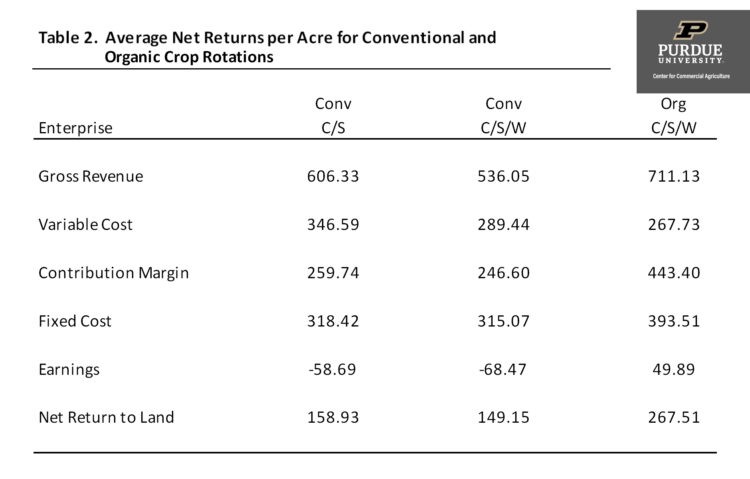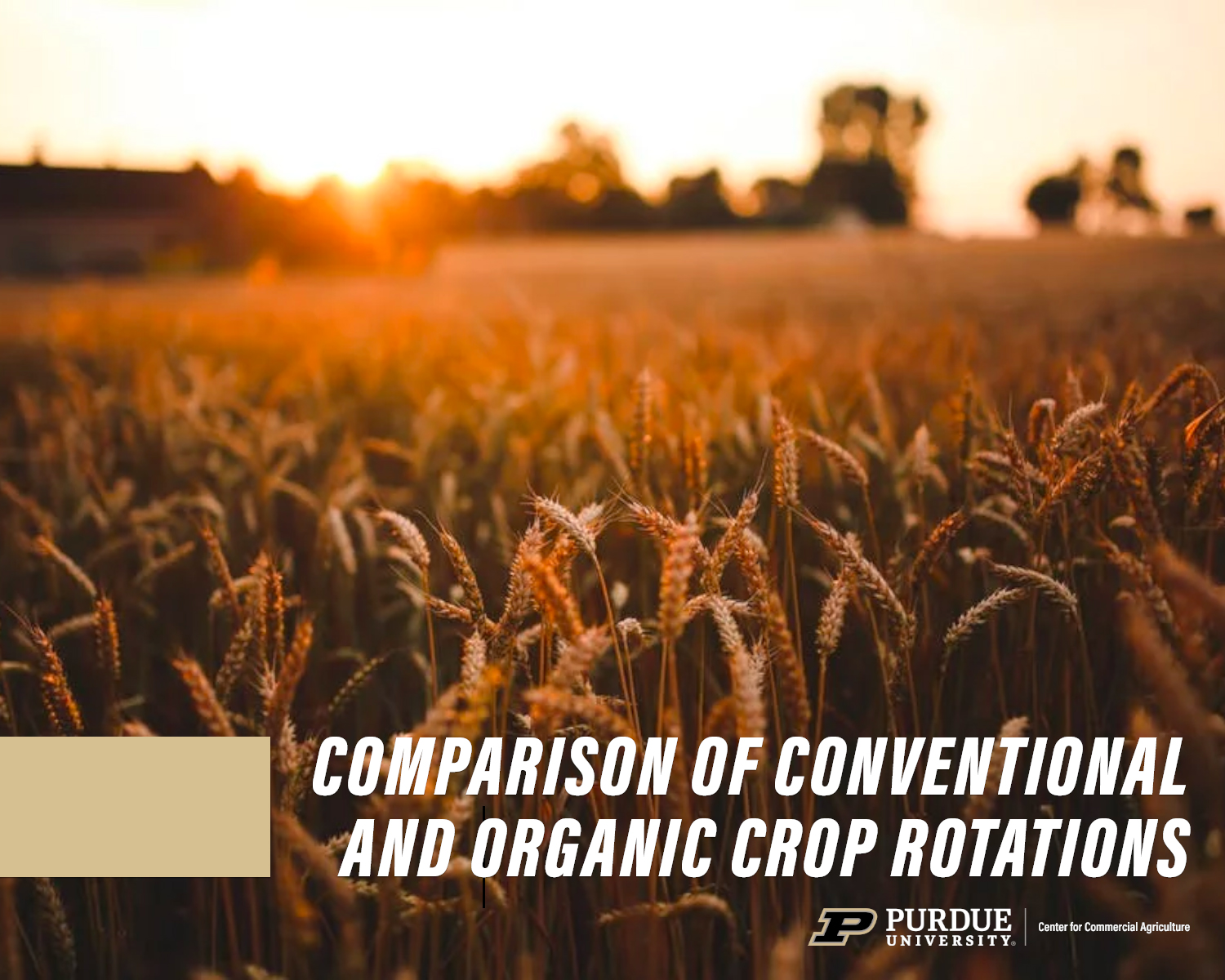A study by researchers at Purdue University says that gross revenue for organic crops can be significantly higher than that for conventional crops.
The study authors compared the long-run net returns to land of conventional corn/soybean rotation and corn/soybean/wheat crop rotations to that of an organic corn/soybean/wheat rotation. The authors developed 10-year enterprise budgets for each crop rotation so that they could capture the net returns of both the years transitioning to organic and the organic production years.
The paper was written by Michael Langemeier, associate director, Center for Commercial Agriculture, and Xiaoyi Fang, a Ph.D. student in agricultural economics.
Organic crops tend to receive higher crop prices and have lower crop yields. For example, organic wheat prices are approximately double that for conventional winter wheat. The authors said that yield drags for organic corn, organic soybeans, and organic wheat were approximately 32%, 33%, and 24%, respectively.

The authors used historical difference between conventional and organic prices to estimate the organic prices.
The variable cost per acre was relatively lower for the organic crop rotation, but fixed costs were higher. The organic crop rotation substitutes manure and machinery costs for fertilizer, herbicide, and insecticide. Labor costs are also higher for the organic crop rotation.
Still, the authors found that the gross revenue for the organic crop rotation was significantly higher than the gross revenue for a corn/soybean rotation and a corn/soybean/wheat rotation. The organic corn/soybean/wheat rotation produced an average net return of $267.51, which was 68.3% higher than the conventional corn/soybean rotation net return of $158.93 and 79.3% higher than the conventional corn/soybean/wheat rotation net return of $149.15.
The authors cautioned that farmers transitioning a portion of their acres to organic crop production should carefully examine the sensitivity of net returns using alternative price, yield, and cost assumptions. They also said that managing an organic crop system can be difficult and that there is a learning curve involved in growing organic crops.
Source: Purdue University
To view source article, visit:









